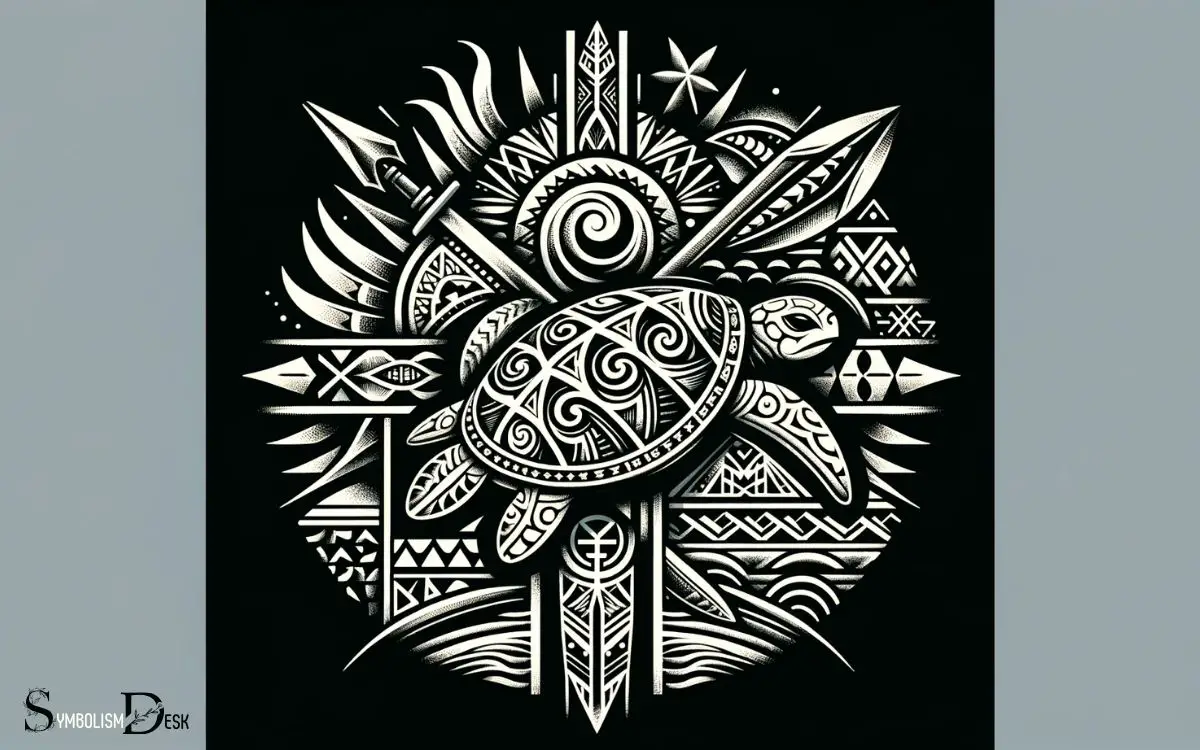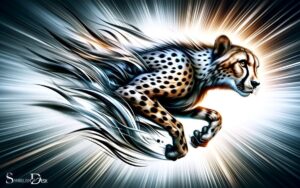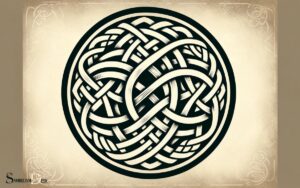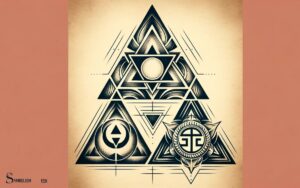Meaning of Polynesian Tattoo Symbols: Explain!
Explore the profound meanings of Polynesian tattoo symbols which are deeply rooted in the region’s cultural heritage. These tattoos are more than just body art; they are a representation of one’s identity, history, and social status within the Polynesian culture.
The symbols often depict elements from nature, warfare, and spirituality, with each pattern telling a unique story. Understanding these symbols can offer a window into the soul of Polynesian tradition and its people.
Polynesian tattoos, traditionally known as ‘Tatau,’ are rich in symbolic significance and are a key aspect of the cultural identity of the Polynesian people.
Each symbol has its own meaning:
- Turtle (Honu): Represents longevity, peace, and fertility.
- Shark Teeth (Niho Mano): Symbolize protection, guidance, and strength.
- Ocean Waves (Nalu): Often signify life, change, and the world beyond.
- Spearheads: Associated with courage and fight in war.
- Tiki: Believed to protect against evil spirits.
- Sun: Indicates leadership, wealth, and brilliance.
- Enata: Human figures that represent life experiences or ancestors.
These symbols are often combined to tell a personal story or to express one’s lineage, achievements, and aspirations.
Polynesian tattoos are a living narrative of a person’s identity, worn with pride and deep respect for ancestral wisdom.

Key Takeaway
Origins of Polynesian Tattoo Art
The origins of Polynesian tattoo art can be traced back thousands of years to the ancient traditions and cultural practices of the Polynesian people. For the Polynesians, tattoos weren’t just a form of body art; they held deep cultural and spiritual significance.
These tattoos weren’t only symbols of beauty but also represented the individual’s identity, genealogy, and personal achievements.
The intricate designs were often inspired by nature, incorporating elements such as ocean waves, sharks, turtles, and other significant symbols.
The process of tattooing was a sacred ritual, with each mark holding specific meanings and serving as a rite of passage for the individual.
Polynesian tattoo art was a way for the people to connect with their ancestors and the natural world, creating a rich tapestry of tradition and symbolism.
Significance of Marquesan Tattoo Patterns
Marquesan tattoo patterns hold deep significance within Polynesian culture, reflecting the rich heritage and spiritual beliefs of the Marquesan people.
These intricate designs convey powerful meanings that are deeply rooted in the beliefs and traditions of the Marquesan community.
The significance of Marquesan tattoo patterns is multi-faceted, encompassing elements such as:
- Spiritual Connection: Marquesan tattoo patterns serve as a means of connecting with the spiritual world, often representing deities, ancestors, and mythical creatures.
- Social Status: These tattoos symbolize one’s social standing within the Marquesan society, with different designs indicating specific roles or achievements.
- Personal Identity: The patterns are also deeply personal, representing an individual’s journey, experiences, and personal beliefs.
These tattoo patterns aren’t merely decorative but serve as a profound expression of the wearer’s cultural and spiritual identity.
Symbolism in Hawaiian Tattoo Designs
Hawaiian tattoo designs incorporate a variety of symbols that hold deep cultural and spiritual significance. Each symbol in Hawaiian tattoos carries its own meaning and often reflects aspects of nature, ancestry, and mythology.
For instance, the honu, or sea turtle, represents protection, longevity, and peace. The enata, a symbol resembling a human figure, signifies relationships and connections with others.
The hibiscus flower, a prevalent motif in Hawaiian tattoos, symbolizes delicate beauty and the fleeting nature of life.
Additionally, the intricate patterns and motifs found in traditional Hawaiian tattoos often convey stories of the islands’ history and legends.
Understanding the symbolism in Hawaiian tattoo designs provides insight into the rich cultural heritage and beliefs of the Hawaiian people.
Cultural Meaning of Maori Tattoo Symbols
Maori tattoo symbols hold deep cultural significance and carry traditional meanings that date back centuries. Understanding the cultural context and symbolism behind these Maori tattoos provides insight into the rich heritage and history of the Maori people.
Exploring the meanings of these symbols offers a fascinating glimpse into the art and storytelling traditions of the Maori culture.
Maori Tattoo Symbolism
The Maori tattoo symbols hold deep cultural significance within the Polynesian tattoo tradition. These symbols convey the rich heritage and beliefs of the Maori people, representing their identity, values, and connections to the natural world.
The cultural meaning of Maori tattoo symbols is profound, reflecting their ancestral stories and spiritual beliefs.
- Ta Moko: The traditional Maori tattooing technique, used to convey information about an individual’s genealogy, tribal affiliations, and social status.
- Koru: Depicting an unfurling fern frond, symbolizing new life, growth, strength, and peace.
- Manaia: A spiritual guardian symbol, often incorporating a bird-like figure with a human form, representing balance and protection.
These symbols aren’t merely decorative; they encapsulate the essence of Maori culture, serving as a visual language that communicates their history and values.
Traditional Significance of Symbols
Exploring the traditional significance of these symbols reveals the deep cultural meaning embedded within Maori tattoo art. Maori tattoos, or “ta moko,” are rich with symbolism, reflecting the history, values, and beliefs of the Maori people.
Each symbol holds profound cultural significance, often representing genealogy, social status, and personal identity.
The table below provides a glimpse into the traditional meanings of some common Maori tattoo symbols:
| Symbol | Meaning |
|---|---|
| Koru | New life, growth, harmony |
| Manaia | Guardian, messenger between gods & mortals |
| Tiki | Human figure, first man, fertility |
| Hei Matau | Prosperity, strength, abundance |
| Pikorua | Eternal bond, representing intertwined lives |
Understanding the traditional significance of these symbols is essential for appreciating the depth of meaning and cultural importance imbued within Maori tattoo art.
Spiritual Importance of Samoan Tattoo Motifs
Samoan tattoo motifs hold a significant spiritual importance in Polynesian culture. These motifs are deeply rooted in tradition and carry profound spiritual meaning for those who wear them.
Here are three key aspects of the spiritual importance of Samoan tattoo motifs:
- Connection to Ancestors: Samoan tattoo motifs are believed to connect the wearer with their ancestors, serving as a link to their heritage and the wisdom of past generations.
- Symbolism of Protection: These motifs are often seen as providing spiritual protection, serving as a shield against negative forces and offering guidance and strength to the wearer.
- Ritualistic Significance: The process of receiving a Samoan tattoo is considered a sacred ritual, involving spiritual ceremonies and traditions that honor the interconnectedness of the physical and spiritual realms.
Understanding the spiritual significance of Samoan tattoo motifs provides insight into the deep cultural and traditional importance of these symbols in Polynesian society.
Traditional Interpretations of Tahitian Tattoo Elements
Tahitian tattoos hold deep cultural significance, with each element carrying its own symbolism and meaning.
Understanding the traditional interpretations of Tahitian tattoo elements is essential in appreciating the rich history and heritage behind these designs.
From symbols representing ancestors to motifs depicting nature, Tahitian tattoos offer a window into the traditional beliefs and values of Polynesian culture.
Symbolism in Tahitian Tattoos
Interpreting the traditional elements of Tahitian tattoos reveals a rich symbolism deeply rooted in Polynesian culture. Tahitian tattoos convey profound meanings through their intricate designs.
Here are three key elements and their symbolic significance:
- Shark Teeth (Niho Mano): Representing power, adaptability, and protection, shark teeth symbolize strength and the ability to navigate life’s challenges with resilience.
- Tiki: Depicting human-like figures, Tiki symbolizes the Polynesian gods and is believed to bring protection, clarity, and spiritual guidance to the wearer.
- Enata: These human-like figures convey the interconnectedness of people and represent relationships, unity, and harmony within the community.
Understanding the symbolism behind Tahitian tattoos provides insight into the profound cultural significance and personal meanings they hold for those who bear them.
Cultural Significance of Motifs
While exploring the traditional interpretations of Tahitian tattoo elements, one can uncover the deep cultural significance of these motifs.
Tahitian tattoo motifs hold great cultural importance, with each symbol carrying its own specific meaning and representing a unique aspect of Polynesian heritage.
Below is a table summarizing the traditional interpretations of some common Tahitian tattoo elements:
| Symbol | Meaning | Cultural Significance |
|---|---|---|
| Enata | People, community | Represents social connections and |
| relationships within the community | ||
| Tiki | Human figure, first man | Symbolizes protection and is often |
| worn as a talisman for good fortune | ||
| Honu | Sea turtle | Signifies longevity, wellness, and |
| peace, as well as the navigator in | ||
| Polynesian mythology | ||
| Marquesan | Cross-like pattern | Represents balance, harmony, and |
| cross | unity in life and nature |
Understanding the cultural significance of these motifs adds a layer of depth and appreciation for the art of Tahitian tattooing.
Conclusion
Polynesian tattoo symbols hold deep cultural and spiritual significance across the various islands of the Pacific. Polynesian tattoo symbols are often derived from natural elements such as the sun, waves, and animals, and are believed to offer protection, strength, and guidance to the wearer. These symbols are passed down through generations and are considered a rite of passage for many Polynesian cultures. The elaborate designs and intricate meanings behind Polynesian tattoo symbols have gained popularity in contemporary tattoo culture, attracting people from around the world who seek to honor and embody the rich traditions of the Pacific islands.
Like a rich tapestry woven with intricate threads, each symbol tells a unique story of heritage, tradition, and identity.
The art of Polynesian tattooing continues to thrive, preserving the ancient meanings and symbolism behind each striking design.






